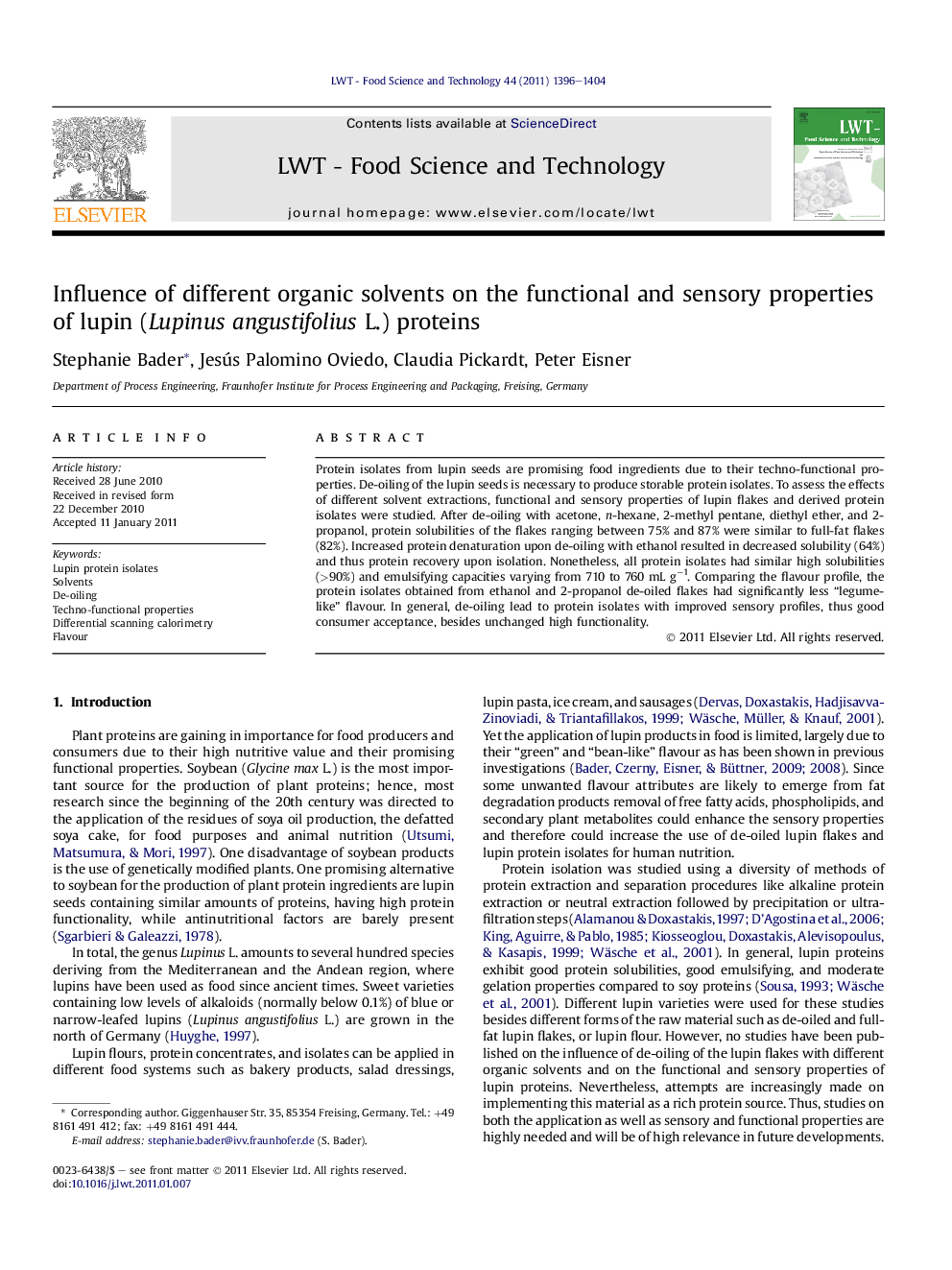| Article ID | Journal | Published Year | Pages | File Type |
|---|---|---|---|---|
| 4564003 | LWT - Food Science and Technology | 2011 | 9 Pages |
Protein isolates from lupin seeds are promising food ingredients due to their techno-functional properties. De-oiling of the lupin seeds is necessary to produce storable protein isolates. To assess the effects of different solvent extractions, functional and sensory properties of lupin flakes and derived protein isolates were studied. After de-oiling with acetone, n-hexane, 2-methyl pentane, diethyl ether, and 2-propanol, protein solubilities of the flakes ranging between 75% and 87% were similar to full-fat flakes (82%). Increased protein denaturation upon de-oiling with ethanol resulted in decreased solubility (64%) and thus protein recovery upon isolation. Nonetheless, all protein isolates had similar high solubilities (>90%) and emulsifying capacities varying from 710 to 760 mL g−1. Comparing the flavour profile, the protein isolates obtained from ethanol and 2-propanol de-oiled flakes had significantly less “legume-like” flavour. In general, de-oiling lead to protein isolates with improved sensory profiles, thus good consumer acceptance, besides unchanged high functionality.
